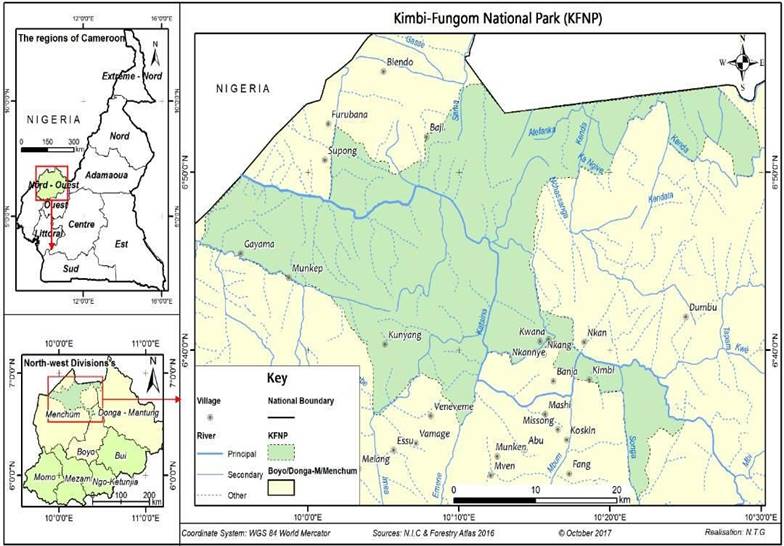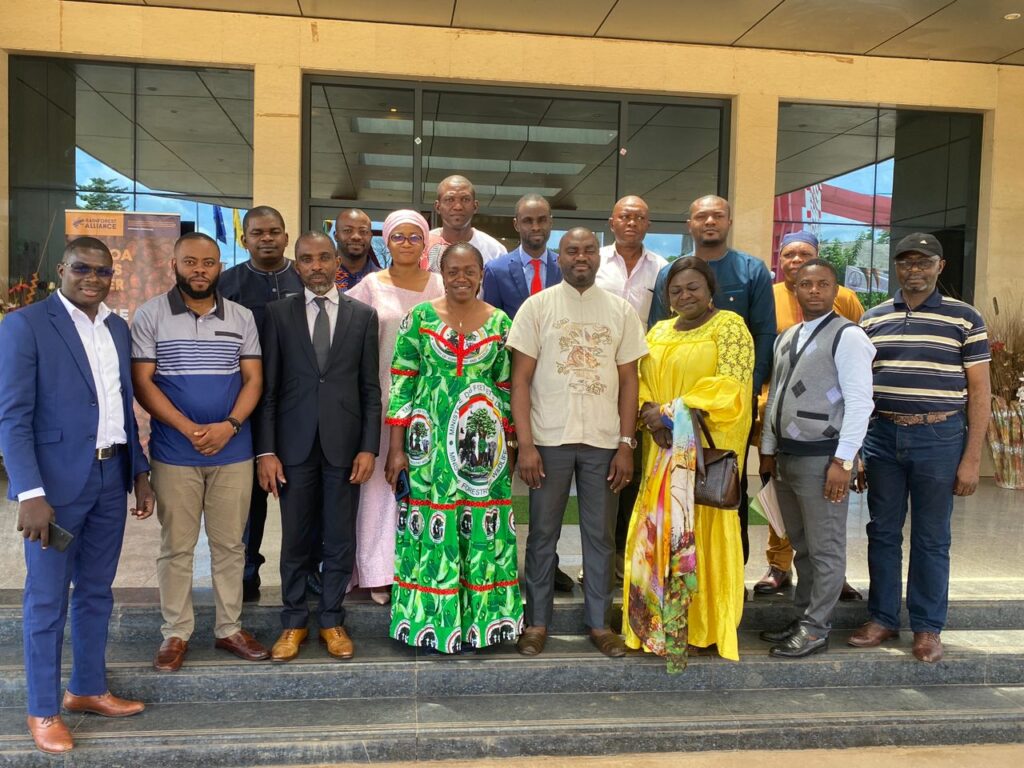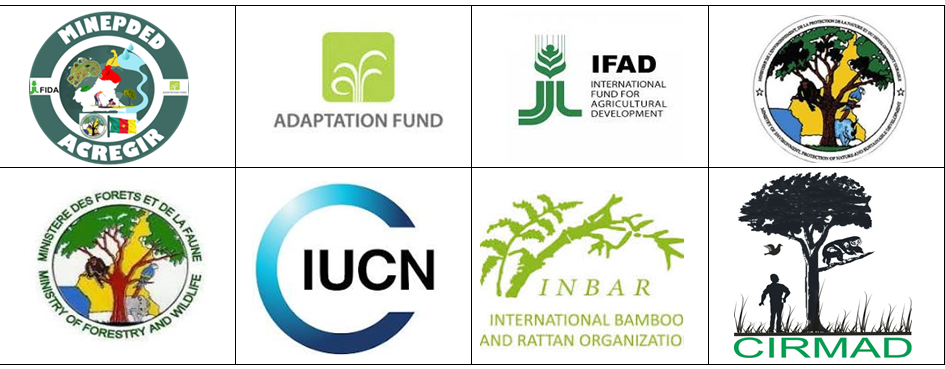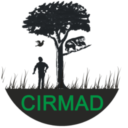PREAMBLE:
The Centre for Indigenous Resources Management and Development (CIRMAD) joins the IUCN and INBAR as one of the non-governmental implementing partners of a climate adaptation project for the Waza, Benue and Kimbi-Fungom national parks of Cameroon.
The project is entitled, “Increasing local communities’ resilience to climate change through youth entrepreneurship and integrated natural resources management,” better known by its French acronym ofACREGIR (Accroître la résilience des communautés locales au changement climatique grâce à l’entrepreneuriat des jeunes et la gestion intégrée des ressources naturelles.
While the IUCN and INBAR are generally involved in all the sectors, CIRMAD is involved particularly in the Kimbi-Fungom sector.

BACKGROUND:
On December 17, 2021, IFAD and the government of the Republic of Cameroon signed a financing agreement for the ACREGIR project, aimed at enhancing the resilience of local communities, particularly women and youth, to climate change. This initiative focuses on promoting resilient livelihoods and integrated natural resources management in the vicinity of three national parks: Waza National Park (Far North), Benue National Park (North), and Kimbi-Fungom National Park (North-West). The project covers a total of 188 villages and targets 8,800 rural households, with defined quotas of 50% women and 40% youth.
With a global grant envelope of $9,982,000, the resources allocated for project implementation were approved by the Board of Directors of the Climate Change Adaptation Fund on September 23, 2020. A financing agreement was subsequently signed on January 25, 2021, between IFAD, as the implementing partner, and the secretariat of the Climate Change Adaptation Fund.
The ACREGIR project aims to achieve its objectives through three technical outcomes:
- Climate proofed institutional frameworks and local development plans at regional and local level;
- Ecosystems resilience to climate change is strengthened through monitoring and better knowledge of their status and vulnerability;
- Sustainable management of natural resources and ecosystems leading to climate resilient ecosystems, green jobs creation for youth, women and resilient livelihoods.
ACREGIR-CIRMAD PARTNERSHIP AGREEMENT & PERFORMANCE CONTRACT
On April 16, 2024, the Centre for Indigenous Resources Management and Development (CIRMAD) signed a Partnership Agreement with the Ministry of Environment, Nature Protection, and Sustainable Development (MINEPDED), the main executing entity, to support the execution of certain activities in project intervention zone of Kimbi-Fungom National Park.
Following the Partnership Agreement, CIRMAD then signed a Performance Contract with the ACREGIR project management body for the technical implementation of its allocated activities within the 3 years’ period: 2024-2026.

THE ACREGIR ACTIVITIES OF CIRMAD:
- Activity 1.2.2: Creation of a community forest;
- Activity 1.2.4: Assess the conservation status of 4 endangered or endemic flora and fauna species and develop climate conservations plans for at least 2 of them;
- Activity 2.1.8: Develop a monitoring system for the conservations plans of the 2 most endangered or endemic flora and fauna species;
- Activity 3.2.1: Implementation of 50 types of sustainable business models of home gardens using techniques to reduce climate risks (such as drip irrigation, soil and water conservation and agro-ecological practices);
- Activity 3.2.2: Funding of youth initiatives to promote rural alternative energy (biogas plants, solar) in agroforestry, NTFP and livestock production value chain development;
- Activity 3.2.5: Support implementation of 500 ha of agroforestry measures through the FFS approach;
- Activity 3.2.14: Build capacities on sustainable forest management practices in communities in and outside the Parks and protected areas;
- Activity 3.3.5: Implementation of Payments for Ecosystem Services schemes (PES) for forest conservation.
PROJECT TARGET POPULATION
The project target population in the Kimbi-Fungom Park sector is estimated at 14,327 inhabitants with 6,638 men and 7,689 women. The Park falls within three divisions namely Boyo, Menchum and Donga-Mantung. And the target 14 villages within the peripheral zone of the Park fall within four (4) sub-divisions, as follows:
- In the Bum Sub-Division there are 3 villages namely: Su-Bum, Kimbi and Mungong;
- In the Fungom Sub-Division there are 7 villages namely: Esu, Munkep, Munka, Gayama, Koshing, Fang and Aba-Messong;
- In the Fru-Awa Sub-Division there are 2 villages namely: Kep and Mkang;
- In the Missaje Sub-Division there are 2 villages, namely: Dumbu and Sabonguida.

